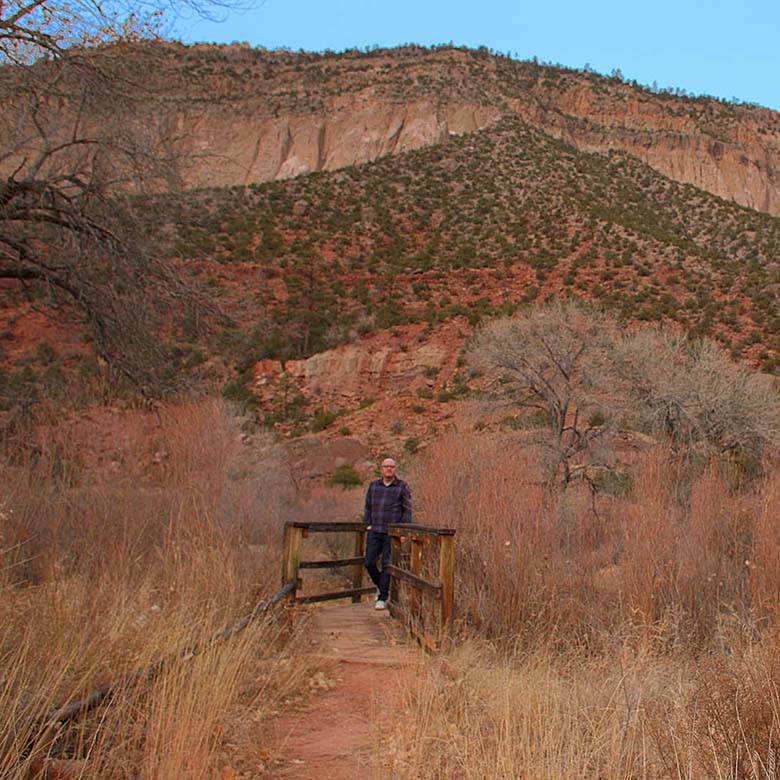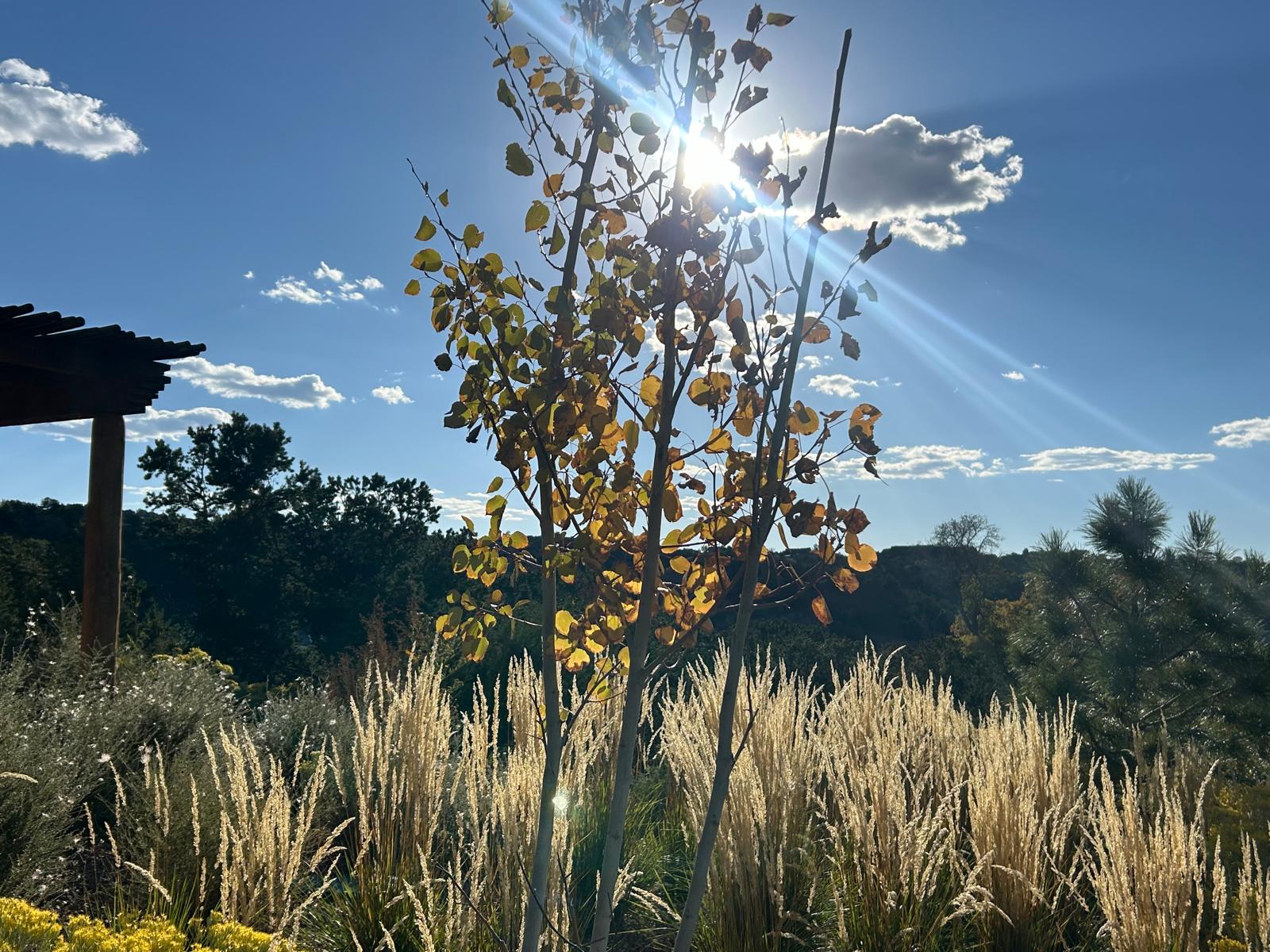
Infusing Calm and Joy Into Your Life: Simple Practices for Daily Serenity
I was reminded this weekend of the importance of finding calm and joy in one’s everyday. My
daughter was away on a retreat of her own and I found myself sitting in silence and gratitude.
For the first time in as long as I can remember, I did not have obligations outside of caring for,
and tending to my own self. There is a beauty in these moments – and I believe it is up to us to
capture these moments as often as we can.
Please enjoy these gentle practices that can help you nurture serenity and calm in your daily
routine.
Mindfulness We often rush through our days, hardly aware of the beauty surrounding
us. Mindfulness is a way to pause and savor the present. It can be as simple as noticing
the warmth of the morning sun, the aroma of coffee, or the sound of birds outside your
window. When we bring attention to these small moments, we open the door to calm and
joy.
Try this: Every morning, take 5 minutes to sit quietly and breathe deeply. Focus on the
sensations in your body and your surroundings. This brief practice helps set a peaceful tone for
the day ahead.
Connecting with Nature Nature is a profound source of peace. Whether it’s a walk in
the park, sitting by a lake, or even tending to a small garden, spending time outdoors
reminds us of life’s simple, enduring rhythms. The natural world has a way of grounding
us and reconnecting us to a slower pace.
Try this: Once a day, step outside, take a few deep breaths, and really pay attention. Notice the
way the light filters through the leaves, or the way the breeze feels against your skin. Let these
sensations bring you back to the present moment.
Gratitude Rituals Gratitude is one of the easiest ways to bring joy into your life. By
regularly reflecting on what you’re thankful for, you shift your focus from what’s missing
to what’s already abundant. This shift creates a sense of fullness and contentment, no
matter the circumstances.
Try this: At the end of each day, write down three things you’re grateful for. They don’t have to be
grand or life-changing—small joys like a kind smile from a stranger or a delicious meal count
just as much.
Creative Expression Engaging in creative activities can be a powerful way to release
stress and infuse joy into your life. Whether it’s painting, writing, cooking, or playing an
instrument, creativity allows you to express yourself and feel a sense of accomplishment.
This flow state brings a deep sense of joy.
Try this: Set aside 20 minutes a few times a week to do something creative. It doesn’t have to be
perfect—let go of the outcome and simply enjoy the process.
Meaningful Connections In our digital age, it’s easy to feel disconnected from others,
even when we’re surrounded by people. But joy thrives in connection. Whether it’s
through a deep conversation with a friend, sharing laughter, or simply spending quality
time with loved ones, nurturing relationships is key to a joyful life.
Try this: Schedule a coffee date with a friend or family member you’ve been meaning to catch up
with. Use this time to truly listen and connect, without distractions.
Embracing Stillness In a world that glorifies busyness, stillness is often undervalued.
Yet, it’s in moments of stillness that we can reconnect with ourselves, let go of stress, and
find clarity. Whether it’s through meditation, journaling, or simply sitting in silence,
stillness invites calm and joy.
Try this: Spend a few minutes each day sitting in silence, without a screen, without distraction.
Notice your thoughts, but don’t judge them—just let them come and go. This practice helps
create a sense of spaciousness in your life.
Acts of Kindness One of the most powerful ways to experience joy is by giving it away.
Acts of kindness—whether big or small—create ripples of positivity. When we help
others, we also nourish ourselves.
Try this: Perform a small act of kindness each day, whether it’s holding the door for someone,
offering a compliment, or donating to a cause you care about. Notice how these actions uplift
both you and others.
Infusing calm and joy into your life doesn’t require a complete overhaul of your routine. Often,
it’s about making small, intentional shifts—practices that bring you back to the present, connect
you with others, and allow you to savor life’s simple pleasures. These practices, over time,
cultivate a deep sense of peace and happiness that stays with you, even in life’s more challenging
moments.
So, start today. Breathe deeply, smile often, and remember that calm and joy are always within
reach.

Making One Whole
Before worship began this morning, I overhead a conversation from the pew behind me where
one person was telling another: “You know, God doesn’t give us any more than we can handle.”
Every part of me went tense and I resisted the urge to turn around and say: “Where in scripture
does it say that?” To be clear, this phrase is not used in scripture, and I am certain that God does
not tinker with us in this way. For some reason, we are inadvertently taught that we are in a
reward system with our Creator – that we are tested and we are born broken and in constant need
of fixing. I for one do not worship this God – I worship the God who loves me always, has made
me whole, and created me in perfection. A God who encourages me to strive to know these
things about myself and to live in a way that lives this message out to the world.
In our pursuit of well-being and living in wholeness, there’s often an underlying assumption that
we are broken, fragmented, or incomplete in some way. This narrative of wholeness is seen as a
destination we must reach — a final state of perfection where all the pieces of our life fit together
seamlessly. But what if being whole isn’t about becoming perfect, but about embracing every
part of ourselves, including the parts we sometimes wish away?
Society often equates wholeness with perfection. We’re told that to be whole, we must have
everything figured out — our mental health, relationships, careers, and self-worth. But striving
for perfection creates pressure, leading to anxiety and self-doubt. True wholeness isn’t about
fixing every flaw or becoming a better version of ourselves; it’s about learning to coexist with
our societal imperfections.
Think of a broken pot repaired with kintsugi, the Japanese art of mending cracks with gold. The
cracks aren’t hidden; they’re embraced and highlighted, making the pot more beautiful for its
imperfections. Similarly, embracing every part of us — our scars, mistakes, and fears — allows
us to live more fully.
In moments of struggle, instead of beating ourselves up for not having it all together, we can
ask, What do I need right now? It could be a break, a listening ear, or simply a moment to
breathe. Small acts of self-care, practiced consistently, can begin to heal the wounds of self-
judgment.
Human beings are wired for connection. Often, the parts of us that feel most fragmented are
those that we feel we must hide from others. But when we open up and share our vulnerabilities,
we invite others to do the same, creating space for authentic relationships that support our
healing. In therapy, for example, healing happens not because the therapist “fixes” us, but
because we’re given a space to be seen and heard without judgment. In these safe environments,
we start to reclaim the lost parts of ourselves, weaving them back into our story.
I believe it’s important to recognize that wholeness is not a final destination but an ongoing
process. Life will always bring new challenges, and with them, opportunities to grow and adapt.
Instead of waiting to feel whole before living fully, we can choose to live as we are — embracing
every piece of us as part of the beauty of being human.
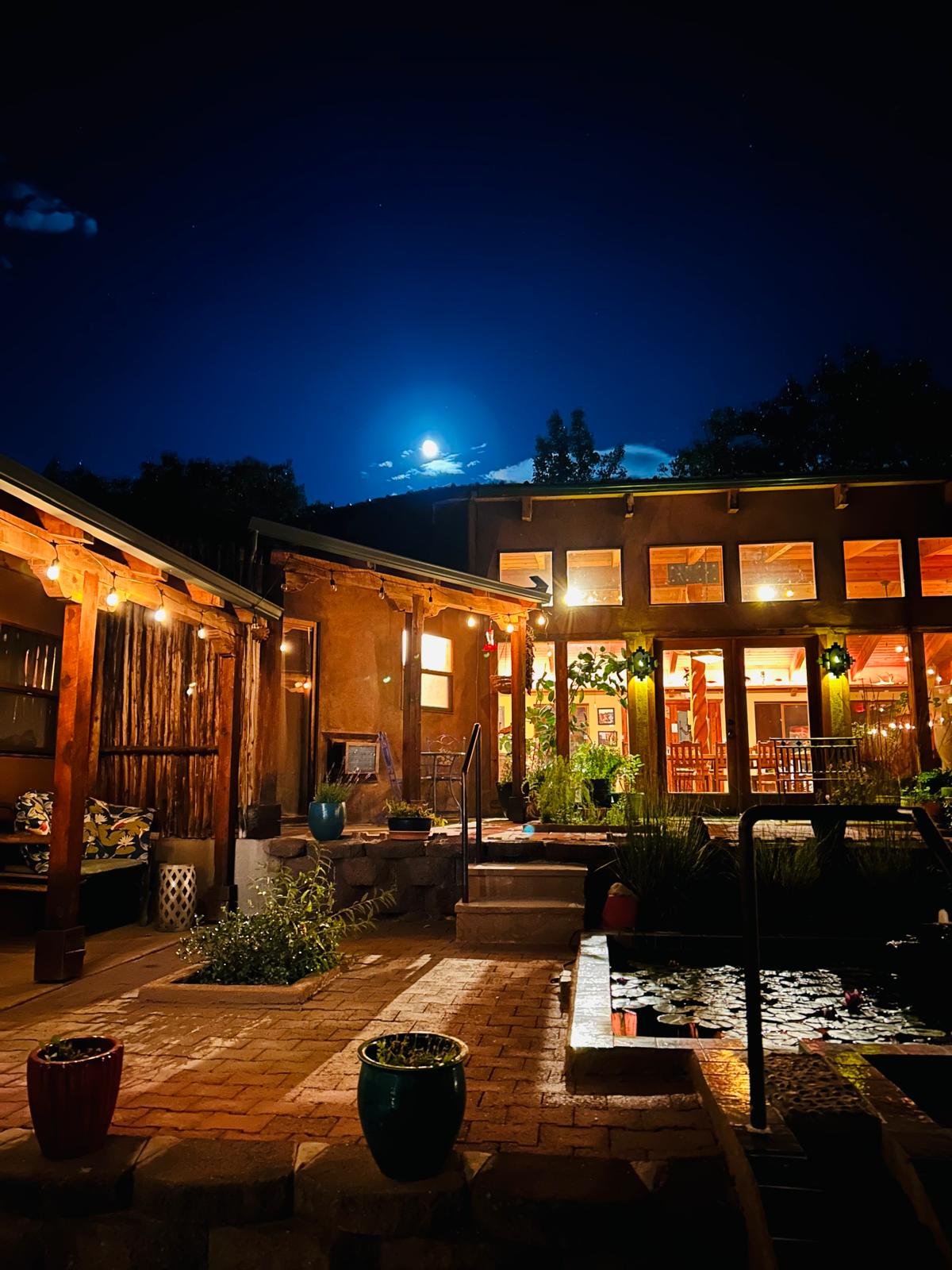
The Power of Connection
Every time I return from a Chrysalis retreat, I am left with a sense of awe by those individuals
who are willing to be so venerable, expressive, and open to one-another. These are people who
do not always know each other, yet find themselves in a season in which the value of connection
with those with similar experiences to their own brings a sense of grounding and renewal.
In a world that often feels increasingly disconnected, the value of genuine human connection
cannot be overstated. Connection is more than just communication; it’s about understanding,
empathy, and a shared experience that binds us together, often in ways we don’t fully realize
until moments of isolation or hardship arise.
Genuine connection requires presence, even in virtual spaces. It involves active listening,
attentiveness, and vulnerability—qualities that often get lost in a barrage of emojis, likes, and
surface-level conversations. While digital tools provide immense potential, they must be used
mindfully to deepen rather than dilute relationships.
Connection plays a powerful role in healing and emotional resilience. Whether during personal
challenges or collective crises, the bonds we form with others can be lifelines. Such acts of
connection in dark times demonstrate that we are not alone. They remind us that even in the
worst circumstances, human beings are capable of creating beauty, offering hope, and finding
joy. In this sense, connection isn’t just about companionship; it’s about survival, strength, and the
resilience of the human spirit.
At its core, the need for connection is a biological and emotional necessity. Humans are social
creatures, wired for cooperation, community, and belonging. The sense of safety and comfort
derived from knowing that someone understands us and is willing to stand with us is
immeasurable. Whether through family, friends, or broader communities, these relationships
anchor us and give life meaning.
In a world where we are often pushed towards individualism and self-sufficiency, it’s important
to remember that asking for help or reaching out for support is not a weakness. In fact, the ability
to seek connection during vulnerable times is one of the most courageous acts we can undertake.
We thrive, not in isolation, but in community.
Building meaningful relationships takes intention. Here are a few steps to foster deeper
connections in our lives:
Be present: Whether in conversation or during shared activities, give your full attention
to the moment. Being present shows that you value the other person.
Listen more: Active listening goes beyond waiting for your turn to speak. It’s about
understanding what the other person is feeling and reflecting on it.
Show vulnerability: Opening up about your own struggles or emotions invites others to
do the same. This mutual trust strengthens bonds.
Create shared experiences: Whether it’s something as simple as a weekly dinner with
friends or participating in a community event, shared experiences build lasting memories.
Some of the deepest connections can emerge in unexpected situations. Whether through brief
encounters with strangers or shared challenges in times of crisis, people can bond over a single
moment of empathy. It reminds us that connection isn’t just about long-lasting relationships but
also about moments of genuine human interaction.
Know this, while it’s easy to take relationships for granted in the rush of daily life, the value of
connection is immeasurable. It sustains us, heals us, and helps us find meaning. Whether through
digital means, personal encounters, or acts of shared humanity, nurturing connection is one of the
most important things we can do—for ourselves and for each other.

The Impact of Silent Injury
This week, I found myself studying a psychological concept that I have heard of and know of but
had never taken time to dig into. I recognize this week’s blog is a little less personal than some,
but I found this topic timely and felt this was a blog that needed to be written.
In the realm of psychological wounds, there is a term that often goes unspoken, yet its impact on
individuals, particularly those who serve in high-stakes environments like ministry can be
profound – this is the often silent wound known as moral injury.
Moral injury occurs when an individual experiences a deep sense of guilt, shame, or betrayal
after witnessing or participating in actions that go against their deeply held moral beliefs. Unlike
post-traumatic stress disorder (PTSD), which is largely rooted in fear-based trauma, moral injury
stems from ethical and moral transgressions. These transgressions can arise when someone:
*Witnesses acts of violence or suffering they believe are unjust.
*Engages in actions they later view as morally wrong, whether willingly or under duress.
*Feels a deep sense of betrayal by leaders or systems that were supposed to protect ethical
values.
One of the complexities of moral injury is that it often flies under the radar. Many of those
affected may not even recognize what they’re experiencing. They might describe feelings of
intense guilt, worthlessness, or hopelessness. Some might feel they can never forgive themselves
or be forgiven for the actions they’ve witnessed or participated in. The weight of moral injury can manifest in a variety of ways:
*Depression and anxiety: The internal conflict between what someone did or witnessed
and what they believe is right can lead to ongoing mental health challenges.
*Loss of faith or purpose: For those with strong spiritual beliefs, moral injury can cause a
deep spiritual crisis, as they grapple with the disconnect between their faith and their
actions.
*Alienation: People suffering from moral injury often withdraw from their communities,
feeling as though they no longer belong or are unworthy of connection.
Healing from moral injury requires more than traditional therapeutic approaches aimed at
treating trauma. While talk therapy, medication, or exposure therapy can be helpful, the key to
healing moral injury often lies in:
*Moral repair: Acknowledging the moral wound and finding ways to reconcile one’s
actions with their values.
*Community support: Connection with others who understand or share similar experiences
can alleviate the sense of isolation.
*Forgiveness: For many, the journey involves seeking forgiveness, both from others and
from themselves. Spiritual or faith-based practices can play a critical role here.
*Acts of restitution: Sometimes, engaging in acts of service or restitution can help restore
a sense of moral balance.
Moral injury is deeply complex, and each person’s path to healing will be different. But
recognizing its existence and providing space for people to process these deeply held wounds is
the first step toward repair. As we continue to learn more about the psychological impact of war,
crisis, and high-stress professions, it becomes clear that healing moral injury requires both
personal and collective effort.
If you or someone you know is experiencing feelings related to moral injury, know that you are
not alone. Help is available, and there is hope for healing through understanding, connection, and
compassionate care.

The Art of Surrender
I have been thinking a great deal lately about the topic of Holy Indifference and the art of
surrender. I cannot pinpoint where this topic first begun for me, but I do know that everyday over
the past month or so, this has been a theme of thought.
In case you are not familiar with the term, it is important to note that Holy Indifference does not
mean apathy or a lack of concern. On the contrary, it is an active spiritual state in which one
becomes fully open to God’s will, detached from personal preferences or outcomes. It’s a
willingness to embrace whatever life brings — joy, suffering, success, failure — with trust and
peace. Rooted in Ignatian spirituality, this concept teaches that the only thing worth desiring is
what brings us closer to God. Everything else is secondary.
I have come to realize that at the very heart of holy indifference is freedom. By letting go of our
attachments, we open ourselves up to a freedom that allows us to love and serve more fully. St.
Ignatius of Loyola, the founder of the Jesuits, wrote about the importance of this inner
detachment, where the soul becomes free to follow God’s will, unburdened by personal agenda.
It’s not about denying human desires or emotions but about holding them with an open hand. We
still feel pain, we still experience joy, but we don’t cling to them as if they define us. Instead, we
find peace in the certainty that God’s plan is greater than our understanding.
As we each know all too well, Life is full of uncertainties — illness, job changes, relationship
struggles, and more. When we cling to control, we end up in a constant state of anxiety. Holy
indifference offers another way: to trust that all things, whether good or bad, are part of a larger
divine tapestry. It doesn’t mean passively accepting injustice or hardship, but instead, finding
serenity in the midst of action.
For example, if you’re striving for a promotion or working toward a personal goal, holy
indifference means working hard, while also being open to whatever outcome unfolds. It’s about
saying, “I want this, but I trust that God knows what’s best for me, even if it’s different from
what I envision.”
This spiritual indifference requires deep faith and trust, but it is also liberating. We surrender the
illusion of control and allow ourselves to be led by something greater. This act of surrender is not
passive but active, calling us to engage with life from a place of trust and peace, rather than fear
and control.
And how do we do this exactly? I suggest the following:
- Daily Prayer: Regular prayer helps nurture the habit of seeking God’s will in all things.
Begin your day with the prayer, “Lord, may your will be done,” and repeat it when you
feel tempted to control outcomes. - Practice Detachment: Reflect on the areas where you feel most attached — whether it’s
your career, relationships, or personal achievements. Gradually practice detaching from
these, not by neglecting them, but by recognizing they are not the ultimate goal. - Discernment: Holy indifference doesn’t mean avoiding decisions. It means discerning
God’s will with clarity, free from excessive attachment to particular outcomes. Practice
asking, “How can I serve God’s purpose in this situation?” - Acceptance of the Present: Learn to embrace the present moment, even when it’s not
what you expected. Holy indifference invites us to fully engage with life as it unfolds,
trusting that each moment holds purpose, even when it’s not immediately clear.
Holy indifference is a lifelong practice, a spiritual discipline that offers peace in the midst of
uncertainty. It invites us to trust that every twist and turn of our lives is leading us toward greater
union with God. By letting go of our need to control, we discover a profound freedom and joy —
a peace that transcends our understanding.
I invite you this day to engage in a surrendering stance of Holy Indifference.

Let the Fall Begin!
There are two specific events that signal to me that fall has arrived – and a word of warning,
these are very New Mexico-centric! One is the smell of roasting green chile and the other is the
Burning of Zozobra. Being a Native New Mexican, and one who has spent the majority of my
life in the Northern part of the state, I can easily say I am not alone in my fondness of these
indicators of the turning of the seasons, but I can also easily say that my nostalgia for these
events is deeply personal and woven into the fabric of my memories.
The aroma of green chile roasting over an open flame is more than just a seasonal scent; it’s a
signal of the harvest, a reminder of home, and an invitation to gather around the kitchen table
with loved ones. Likewise, the Burning of Zozobra, an annual tradition in Santa Fe where a giant
effigy known as Old Man Gloom is set aflame, represents a collective release of troubles and a
communal welcoming of the new season. These events not only mark the passage of time but
also provide a comforting rhythm to the year, a reassurance that no matter what happens, some
traditions remain steadfast.
In the world of therapy, there is a well-known set of writing techniques based on the premise that
writing your thoughts down in an expressive way is a tried-and-true method of dissipating
complex memories and emotions. These techniques include standard journaling, using prompts
to dig deeper into one’s psyche, and even the ritual of safely storing or destroying the written
words—sometimes through shredding, dissolving with water, or burning. Much like the Burning
of Zozobra, these acts can symbolize a release, a way to acknowledge and let go of the past.
We each have our own indicators of fall, those unique markers that signal the change in seasons,
both external and internal. For some, it might be the crunch of leaves underfoot or the return of a
favorite sweater. For others, it’s the tangible shift in light as the days grow shorter. But beyond
the sensory cues, there’s often a deeper, more introspective shift—a time to reflect on what
we’ve harvested over the year and what we’re ready to release. Just as New Mexicans gather to
watch Old Man Gloom go up in flames, we too can use this time to consider what burdens we are
ready to burn away, what memories we are prepared to let dissolve like the smoke rising into the
autumn sky.
Fall, in its quiet transformation, invites us to acknowledge both the beauty and the necessity of
change. And as the green chile roasts and Zozobra burns, I am reminded that with each ending
comes the promise of renewal—a fresh start, a new season, and perhaps, a little less gloom.
Blessings to you on this journey,
Rev. Dr. Kelly Jackson Brooks, LPCC
Executive Director
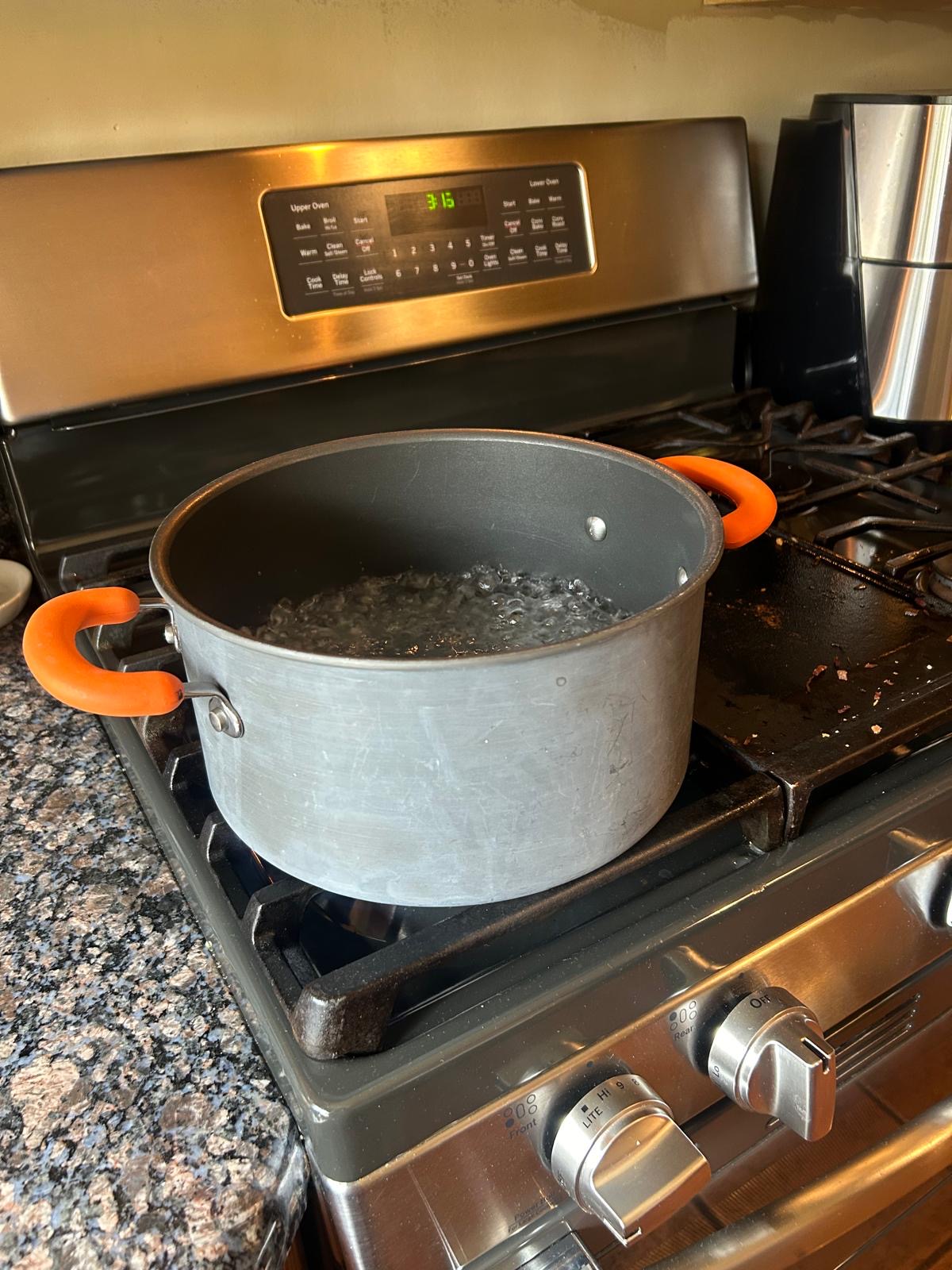
Frog in the Boiling Water
There is a phrase that exists in Americana vernacular, and although I have no idea where it
originated, instinctively I know what it means – Frog in the Boiling Water. For those of you who
have perhaps never heard this phrase, it is a metaphor that refers to a person who sits in a
situation which may seem strange or odd at first, but the temperature is such that we remain in
the uncomfortable situation. Eventually, we cease to recognize the toxic and boiling temperature
of the situation that surrounds us, and we are taken over to the point where we struggle to jump
out of the now boiling water.
As is the case with many of these circulating metaphors, the Frog in the Boiling Water is a bit
grotesque, but I can guarantee with 98% certainty, that each of you have a situation that you have
experienced playing in your mind right now that fits the Frog in the Boling Water scenario. For
me, it took an emotionally toxic bully to extricate me from my Frog in the Boling Water situation
and for that, I am grateful. For you, it may be a situation from your childhood, young adult life, a
relationship, a friend-circle, or employment. These situations are often painful to move through,
but once on the other side, we can often find our breath and our voice once again.
The perspective of jumping out of the water – for whatever reason – reminds me of a much
gentler turn of phrase from The Journey written by a favorite poet of mine and many, Mary
Oliver in which she says: “But little by little, as you left their voices behind, the stars began to
burn through the sheets of clouds and there was a new voice which you slowly recognized as
your own…”
We find ourselves and our voices in the most unlikely and unexpected ways, don’t we? Today, I
encourage you to take a step back and reflect. Perhaps, you find yourself in rising temperatures
and it’s time to reach out and seek support to be pulled from the boiling pot. Perhaps, you are in a
place of revisioning and reclaiming who you are. Perhaps, you are finding yourself on your feet
and fully embracing what is all around you and before you. In any case, be grateful and seek out
those who support, encourage, and care for you regardless of the leg of the journey you find
yourself on.
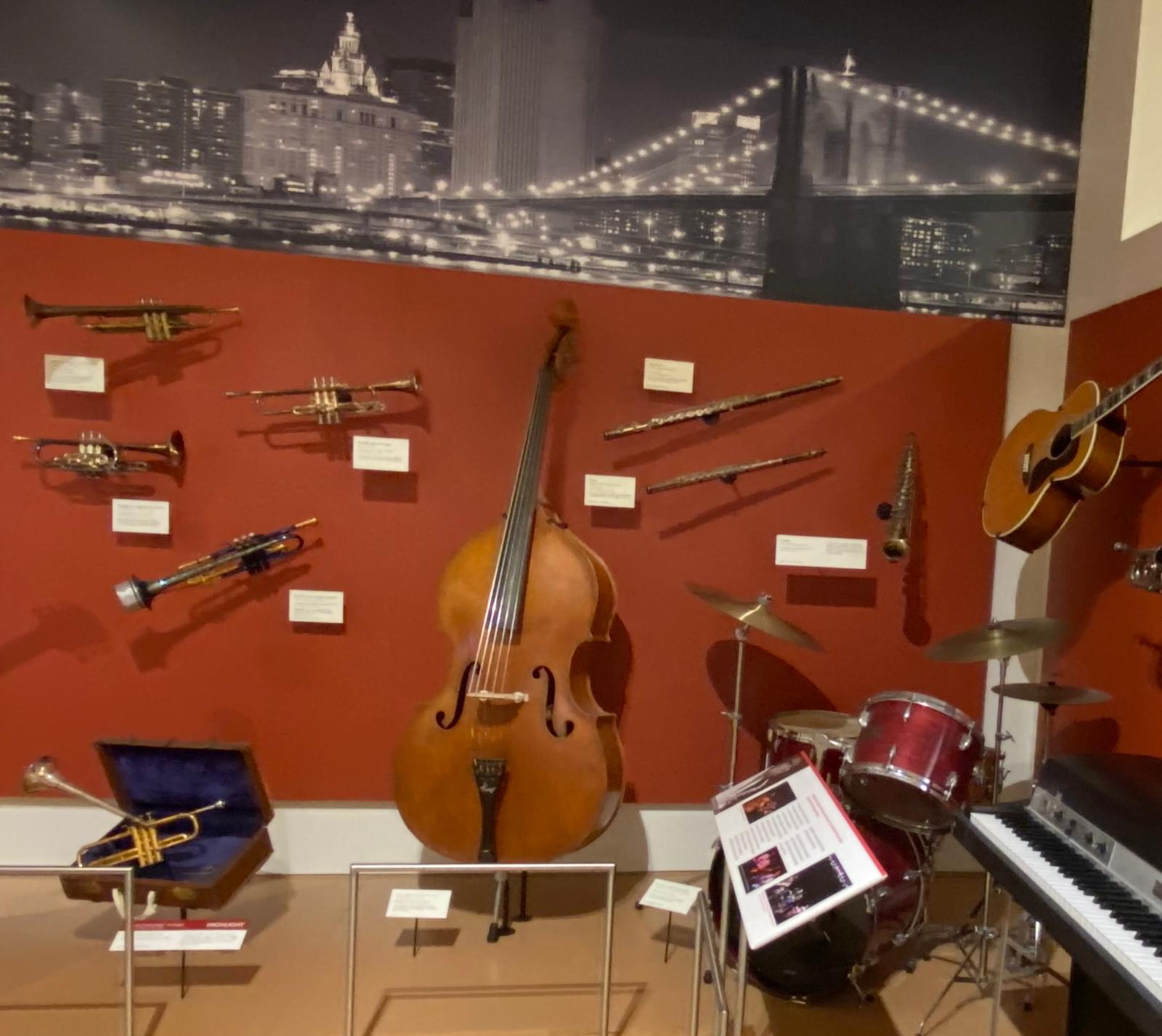
In Search of Joy
I am a sucker for a good story about human survival and the building of resiliency within
individuals and communities. I love the grittiness and messiness that lives in the human
experience and the What Happens Next and What Do We Take From This? I was recently
privileged to hear such a story of tragedy and the ability to great beauty within the rubble. This is
the story of Vedran Smailović, known as the “Cellist of Sarajevo,” and it is a poignant example
of finding and creating beauty in the darkest of times. In the midst of the brutal Siege of Sarajevo
during the 1990s, Smailović chose to play his cello in the ruins of his city, specifically to honor
the 22 people who were killed while waiting in line for bread. His act was more than just a
tribute; it was a defiance against the horrors of war and a statement that beauty, art, and humanity
could persist even in the face of overwhelming darkness.
The message of Smailovićs’ story, and the way it is echoed in the novel The Cellist of Sarajevo,
teaches us that joy and beauty are not just things that happen to us—they are things we can
choose to create and share, even when circumstances seem hopeless. The characters in the novel,
though they do not directly interact with the cellist or each other, are each profoundly affected by
his music. His playing becomes a symbol of resilience and a reminder that the human spirit can
find ways to endure and even flourish, despite the surrounding despair.
In this story, the search for joy is not about finding it in conventional places but about creating it
where it seems impossible. It shows that joy can be an act of resistance, a way to assert one’s
humanity in the face of dehumanizing conditions. The cellist’s music, echoing through a war-torn
city, symbolizes the power of art and the human capacity to find meaning, beauty, and
connection, even when everything else seems lost.
Ultimately, the lesson is that joy is not something passive that we wait for; it is something we
actively cultivate. Even in the darkest times, we can choose to create moments of light, and in
doing so, we can inspire and uplift others around us. This search for joy becomes a lifeline, a
way to maintain hope and dignity when it feels like everything else has been stripped away.
I encourage you – find the light today.
‘Tis a Gift to be Simple
Some of you may be wondering, “What exactly am I looking at in this photo? Is that a frog?”
Your questions are justified and yes, what you are looking at is indeed a frog and more than a
frog, it’s a frog flowerpot that I have owned since I was a very young girl. My mother is an avid
flower gardener and worked to instill this passion in me and as a hook in her plan, she purchased
this child-like frog flowerpot to get me started. And yes, I plant some sort of flowering foliage in
this very sentimental pot every year!
Something to know about me is I do not keep a great deal of physical positions, specifically
physical positions that do not serve a purpose. My loving older brother literally once told me that
I was “The least sentimental person he knows.” I do not collect tchotchke, I do not keep books
that I have already read, I do not appreciate trip trinkets. Rather, I love going and experiencing
places, cultures that are different than mine, and great food with friends and family. I am one of
those who spends money and time on travel, and I collect experiences and memories. So, the fact
that I have kept and moved this 1970s-style frog flowerpot certainly say’s something.
I deeply believe that what and who we surround ourselves with say’s more about what our values
are than we truly take time to consider. Are you a collector of items of interest? Do you like to
remember your adventures through photos and mementoes? Do you proudly display your
achievements on your office walls? There are meanings and reasons behind each of the decisions
we make in what and how we share with others what holds meaning and space for us.
This week, I encourage you to take time looking around the spaces in which you occupy. What
does what you own and how you share these pieces of you say about you? Is the message you are
sharing the message you want to convey?
Ouvrons grand les Jeux: Games Wide Open!
Once every four-years, something a bit whimsical and nostalgic happens, and unless you are free
of all media and are perhaps living under a proverbial rock, you know I am referring to the
Summer Olympics! Since 1984 when the games were held in the City of Angels and proudly
touted its mascot, Sam the Olympic Eagle, I have been a dedicated consumer of the Olympic
games. Like many, I have my favorite events to watch, and I am always in awe of what the
human body, mind, and spirit are capable of as each are so openly displayed for all to witness –
and share our opinions and commentary on, even when we have no idea what we are talking
about.
I have always believed we can learn a great deal from the athletes who so proudly share with us
who they are – they are vulnerable and dedicated in ways we can’t always easily comprehend.
This year, another learning moment came to mind as I was comparing this year’s Golden Girls:
US Women’s Gymnastics Team, to teams of the past. There is simply something different that we
are observing this year, and I was having a difficult time naming what this thing was until I came
across a Ted Talk highlighting the differences between Belonging and Fitting In.
Belonging is about being accepted for who you are, feeling a sense of community, and knowing
that your authentic self is valued. It involves mutual respect, shared values, and a sense of
identity within a group. Fitting in, on the other hand, often requires conforming to the
expectations, norms, and standards of a group. It can mean suppressing or changing parts of
oneself to be accepted.
And there it is! What we are privileged to observe during the games this year, and at times be a
part of in our own lives, is what a community can be when the value of Belonging vs. simply
trying to Fit In is at play. When we truly allow those in our midst, including ourselves, be who
they and we are, the community is better for it, and it shows.
I am well aware that I have shown up in social circles, professional settings, and in ministry
trying to Fit In. In some cases, I kept-up the Fitting In Game going until the bitter end, but in
other situations, I allowed my authentic self to appear in an attempt to Belong. What I have
personally discovered is the importance of showing up Day One in an authentic way and not
being so concerned about Fitting In, rather Belonging in spaces that are authentic and true to who
I am and to the community.
My hope and prayer this day, is that we each find our authentic selves – always beautiful and
sometimes messy – and we know the joy of Belonging.


